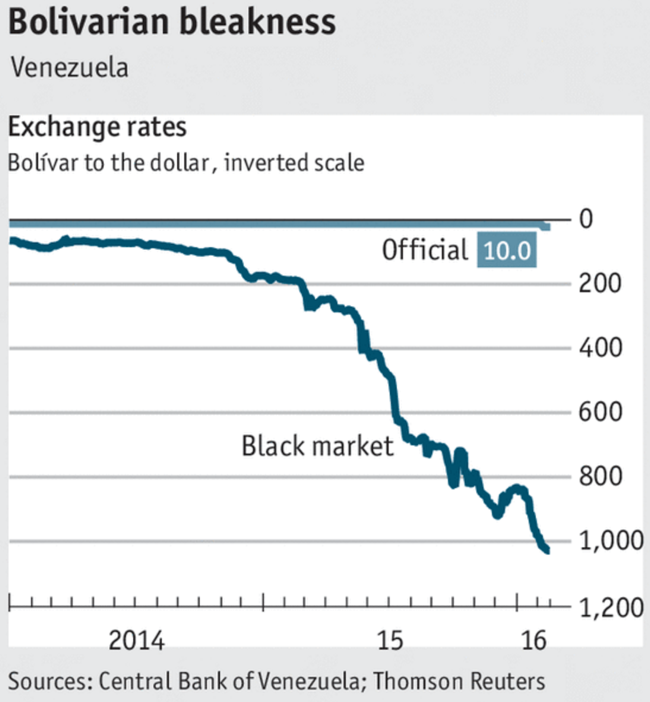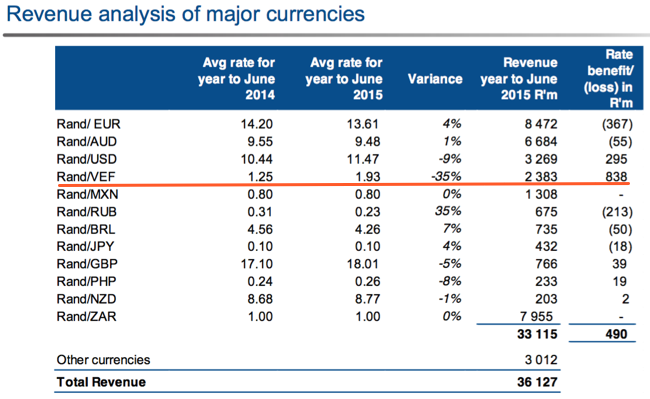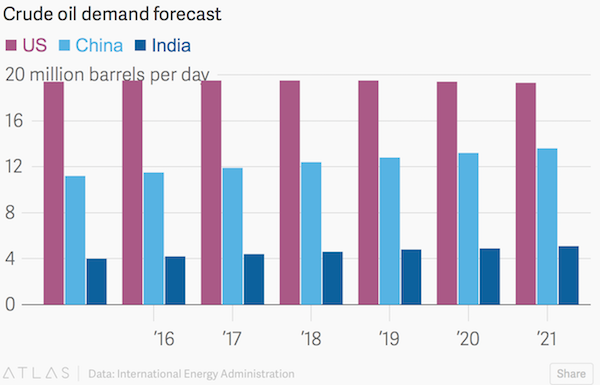"Year to date the stock is still down 6.62 percent, the move yesterday was up nearly nine and a half percent. The stock is up over 21 percent in less than two weeks. As we pointed out, the stock is still down year to date and over the last 12 months the stock is down over 31 percent. 5 years? Up 246 percent."
Blunders, Episode 2 watch the latest instalment. If you would like to get an email delivered to your inbox, then sign up here: Blunder Alert!
To market to market to buy a fat pig It is budget day today. And whilst most of you may think that it is the most important day of the year for us, it is not. I know that it impacts on all of our lives, higher taxation is not fun for anyone. Although as many have pointed out, a ratings downgrade leading to higher borrowing costs and lower Dollar wealth is worse for those with capital. It does matter what Mr. Market thinks about your ability to meet your obligations. In a world of choices, you can choose investment x or y, investable money thinks in only one dimension.
Switzerland has negative bond yields on their 10 year debt government issue. I can't quite wrap my head around that. Ireland, the country that has made a monster comeback after being in the PIIGS (Portugal/Italy/Ireland/Greece/Spain) category of distressed sovereigns, sees their 10 year bond yield 0.91 percent. True story. Italy, 1.53 percent. Portugal, 3.3 percent. Spain, 1.66 percent. And Greece, 10.26 percent. And us, down here at the tip of the continent? The R186 yield (matures in 2026) is 9.15 percent. It was yielding 9.64 percent nearly a month ago.
Portugal is not just a little safer than us, they have the Draghi bazooka behind them, this is why we need to be prudent. We don't have such luxuries. Our peers globally? According to Bloomberg data -> Rates & Bonds, Brazilian 10 year government issued bonds yield 6.63 percent, Indian government bonds have yields of 7.82 percent. So if I look at it at face value, our bonds are compensating the market for taking risk and lending us money, we are closer to riskier countries like Greece than we are to Brazil. When you look at it that way it feels bad. And perhaps it ought to.
So whilst we watch and it has a direct bearing on all of us, as investors, in truth there is nothing that any of us can do about the budget. And my point about the day not being the most important is due to the fact that we only have control over the investments we pick. And that is what is more important to us, the companies we own, their financial health, their prospects and their positioning. We can choose here. Things you can't choose, your parents, where you were born, what economic class you are born into, your name. And whilst you can change your economic class with much perseverance, I suspect that changing your name may be the easiest thing to do on this list. Choosing companies to own, that is far easier.
The doubled edged sword that is the currency. Rand investments in companies that have their listings in either Europe or the UK have been very attractive recently, over the last few days it became apparent that this is not always one way traffic. The Pound Sterling has been taken to the cleaners on the possibility of the United Kingdom exiting the European Union. I can't imagine anyone would find it a favourable outcome, perhaps one eyed bigots. Stealing what jobs? Morons.
In Rand terms, the two day performance has seen the Rand to the Pound strengthen from 21.97 to the Pound on Monday to 21.27 currently. On the currency. That is nearly 4 percent. In fairness, the Rand and other emerging market countries have been catching a bid in the face of the prospects of rising interest rates, the improvement in commodity prices and a general feeling that emerging market stocks are perhaps too cheap, on a relative basis. My point is that whilst you may feel like you own a "good one" as it is a Rand hedge, what matters the most is the business in the long run. The Rand may well do an about turn if the high road scenario returns. Stay tuned for the budget speech, we certainly are not going to give a hugely detailed analysis, leave that to the experts.
Markets in Jozi, Jozi were under pressure yesterday, led lower by the resource stocks which were down nearly two and a half percent on the day. The other sector that continues to slide and slip are the financials, as a collective those stocks were down just over two and one-quarter of a percent. The All Share was down 1.41 percent by the end of the session, stocks have lost around two and a half percent over the last two sessions.
Over the seas and far away, stocks in New York, New York slid along with the oil price. Again, that correlation which drives me dilly, oil prices and equity markets. It will break, I just don't know when. Energy stocks as a whole slid three and a one quarter of a percent, pushing the broader market S&P 500 down one and one-quarter of a percent down. The nerds of NASDAQ lost nearly a percent and a half as Apple and Microsoft dragged the index lower.
Why did the oil price turn and head south? We had pointed out earlier in the week that the Saudi oil minister was talking at an oil conference in Houston, his comments were hardly favourable for the oil price. Many are expecting oil prices to remain depressed, and that may well drag many marginal businesses with it. Saudi Oil minister Ali al-Naimi ruled out cuts in production, the upshot of it all was an oil price falling 4.5 percent on the day. Iranian comments about oil freeze on production as being "ridiculous". Which means that they don't agree. You would normally expect consumer discretionary stocks to rally on that news, right? No, consumer cyclical stocks as a whole fell nearly 0.4 percent. I guess less than the rest of the market.
Company corner
Finally. And by that I mean the share price of Aspen Pharma moving northwards in a serious manner. Year to date the stock is still down 6.62 percent, the move yesterday was up nearly nine and a half percent. The stock is up over 21 percent in less than two weeks. As we pointed out, the stock is still down year to date and over the last 12 months the stock is down over 31 percent. 5 years? Up 246 percent. As ever with stocks, it depends where you draw your line in the sand when measuring performance. Why has the stock moved so much in the last little while? Yesterday the company released a trading update, we can do a copy and paste of the table from the SENS announcement:

Nice graphics skills, right? Learnt everything I know from Paint Shop Pro version 3 I think, more than just a while back. Nowadays since I have been using a Mac for a number of years now, I use Pixelmator. That name always reminds me of the hillbilly tow truck from Cars. OK, what does this mean, why is there a discrepancy between the different numbers? They (Aspen) say the following: "In order to provide Aspen shareholders with clear comparability of the financial performance of the ongoing underlying business, a measure described as comparable NHEPS has been determined by excluding the contribution from the Divestments." NHEPS being normalised headline earnings per share.
They have decided to do the right thing. And by that I mean take the real rate on the streets (most people refer to this as the black market rate, I'd like to think people are betting at setting markets than governments) in Venezuela. The company fleshes it out:
"The economic situation in Venezuela has deteriorated over the 6 months to 31 December 2015 and the Venezuelan authorities have increasingly limited authorisations to pay for pharmaceutical imports using the official CENCOEX rate during this period of Venezuelan Bolivars ("VEF") 6.30 per USD. As a consequence of the limited payment approvals and the uncertain economic and political situation in Venezuela, Aspen has concluded that it would be more appropriate to apply the SIMADI exchange rate of VEF 200 per USD to report the Venezuelan business financial position, results of its operations and cash flows for the 6 months ended 31 December 2015. This has resulted in a once-off currency devaluation loss on foreign denominated liabilities of R841 million."
How badly has the official rate changed from the real market rate? This is a graphic (very graphic) picture of the divergence of the street rate of the Bolivar to the US dollar, versus the made up rate by the socialist folks who live with their heads in cloud cuckoo land. I am sorry, let me rephrase that, the black market rate versus the official rate. Here is the best hedge I can think of. Take your Dollars, swap them to Bolivars at the black market real rate. Go to the government bank and try and swap your Bolivars to Dollars at the official rate unicorn rate. If you are successful, repeat. Over and over. In reality, this is impossible, you cannot do it. As you can see as per the graph below, 200 Bolivars to the Dollar being wrong. See this graph below from the Economist article: Venezuela: a nation in a state.

Wow. Venezuela is not likely to default this year, but if the oil price stays lower for longer, it is inevitable. The Venezuelans owe the Chinese 17 billion Dollars. If the Venezuelans do default, it would be the second biggest default of all time, after the Greek restructuring in 2012. So there may well be more pain to be experienced in this geography. Herewith, from the final year presentation, you can see that Venezuela is an important contributor to the overall revenue of Aspen, the fifth largest here.

I will be interested to see when the company reports numbers on the 3rd of March. For the time being the company seems to have beaten market expectations handsomely. We will report back then on the company and their prospects, which we still continue to believe is one of the best opportunities in our local market.
Linkfest, lap it up
Which LSM do you fall into? Here is a quick test to give you a general idea - LSM Calculator. LSM stands for Living Standards Measure, it gives you a score based on what things you have access to. Doing the test makes you realise some of things you take for granted.
The next economy that commodity producers are looking at to help boost prices is India, who many would argue has under performed its potential over the last decade or two - The next big shift in the global oil market is underway, and it centers on India. India is forecast to overtake China in 2022 as the worlds most populous country but as you can see below, India is still well behind the US and China in terms of oil demand.

A new gimmick for your coffee machine, the ability to order from your cellphone - Why does this Nespresso machine have Bluetooth? Unless the coffee was brought to me by a robot I am not sure that I would ever use this function, walking to the machine, pushing "start", waiting 30seconds and then taking your coffee is not exactly time consuming.
Home again, home again, jiggety-jog. Stocks across Asia are mixed, Shanghai is up over half a percent, Japanese stocks are off their worst levels, down still over three-quarters of a percent, whilst stocks in Hong Kong are down one and one-third of a percent. We should start mixed here, I am guessing there will be action on the currency later in the day, and possibly also on the stocks that would be consumer facing. Stand by!
Sent to you by Sasha and Michael on behalf of team Vestact.
Follow Sasha, Michael, Byron, Bright and Paul on Twitter
078 533 1063
No comments:
Post a Comment